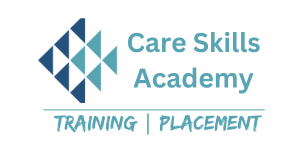Air conditioning (AC) systems have become a crucial part of modern living, providing comfort in homes, offices, and various industries. With the increasing demand for efficient cooling solutions, the need for skilled AC repair technicians has never been higher. An AC repairing course offers comprehensive training that equips you with the knowledge and skills to excel in the HVAC (Heating, Ventilation, and Air Conditioning) industry. In this blog, we will explore what an AC repairing course entails, the benefits it offers, and the career opportunities available to you upon completion.
Why Choose an AC Repairing Course?
An AC repairing course is designed to provide hands-on training and technical expertise to those who wish to pursue a career in the HVAC industry. Here are some compelling reasons to consider enrolling in this course:
- Growing Industry Demand: With the rising demand for air conditioning systems in residential, commercial, and industrial spaces, there is a consistent need for trained technicians who can install, maintain, and repair these systems.
- Lucrative Career Opportunities: Skilled AC repair technicians are in high demand, and this course can lead to a stable career with competitive salaries and growth opportunities.
- Hands-On Experience: The course provides practical experience, allowing you to work directly with AC units, tools, and diagnostic equipment, giving you the confidence to handle real-world challenges.
- Entrepreneurial Potential: The skills you gain from this course can help you start your own AC repair business, providing services to clients in your area.
What You Will Learn in an AC Repairing Course
A well-structured AC repairing course covers a range of topics to ensure that you are fully prepared to handle any AC-related issues. Here’s an overview of what you can expect to learn:
1. Introduction to Air Conditioning Systems
- Basic concepts of HVAC systems, including the principles of heat transfer, refrigeration cycles, and the role of different components in cooling.
- Types of air conditioning systems, such as window AC, split AC, central AC, and portable units.
2. Understanding AC Components and Functions
- Detailed study of AC components like compressors, condensers, evaporators, thermostats, and capacitors.
- How each part functions within the system to provide cooling and comfort.
- Identification of common issues that affect the performance of these components.
3. Installation and Maintenance Techniques
- Step-by-step guidance on installing different types of AC units, including safety measures and best practices.
- Preventive maintenance procedures to ensure the longevity and efficiency of air conditioning systems.
- Cleaning techniques and troubleshooting tips to keep AC units in optimal condition.
4. Electrical and Mechanical Troubleshooting
- Diagnosing electrical problems within the AC system, such as issues with wiring, circuit breakers, and fuses.
- Mechanical problem-solving, focusing on refrigerant leaks, airflow restrictions, and compressor faults.
- Using diagnostic tools to identify and repair faults quickly and accurately.
5. Refrigerant Handling and Environmental Safety
- Safe handling of refrigerants, including guidelines for charging, recovering, and recycling.
- Understanding the environmental impact of refrigerants and adhering to regulations for their safe disposal.
- Techniques to detect and repair refrigerant leaks efficiently.
6. Advanced Techniques and Emerging Trends
- Introduction to advanced HVAC technologies like inverter-based AC units and smart cooling systems.
- Insights into energy-efficient practices and environmentally-friendly solutions in the cooling industry.
- Awareness of the latest trends and innovations in air conditioning technology.
Benefits of Taking an AC Repairing Course
Enrolling in an AC repairing course can provide numerous benefits that can positively impact your career:
- Certification: Many courses offer certification upon completion, which boosts your credibility and enhances your job prospects in the HVAC industry.
- Practical Knowledge: The combination of theoretical understanding and hands-on practice ensures that you are well-prepared to handle any AC-related challenge.
- Career Flexibility: The skills you gain allow you to work in various settings, such as residential areas, commercial establishments, and industrial facilities.
- High Earning Potential: Skilled technicians can command higher wages and have the potential to increase their earnings by taking on freelance projects or starting their own business.
Career Opportunities After Completing the Course
Upon completing an AC repairing course, you will be well-equipped to pursue a variety of career paths in the HVAC industry:
- AC Technician: Work with HVAC companies, service centers, or independent contractors to install, maintain, and repair air conditioning systems.
- HVAC Specialist: Specialize in both heating and cooling systems, offering services that cover a broader range of climate control solutions.
- Maintenance Engineer: Provide regular maintenance services to ensure that air conditioning units operate efficiently and remain in good condition.
- Freelance AC Technician: Offer your services on a freelance basis, giving you the flexibility to set your rates and work on your terms.
- Business Owner: Use your expertise to start your own AC repair business, serving residential and commercial clients in your area.
Conclusion
An AC repairing course is an excellent investment for anyone looking to build a rewarding career in the HVAC industry. With comprehensive training in the installation, maintenance, and repair of air conditioning units, you gain the skills needed to thrive in a competitive market. Whether you aim to work with established companies or start your own business, this course opens doors to numerous opportunities. Enroll today and take the first step towards a successful and lucrative career in air conditioning repair!

